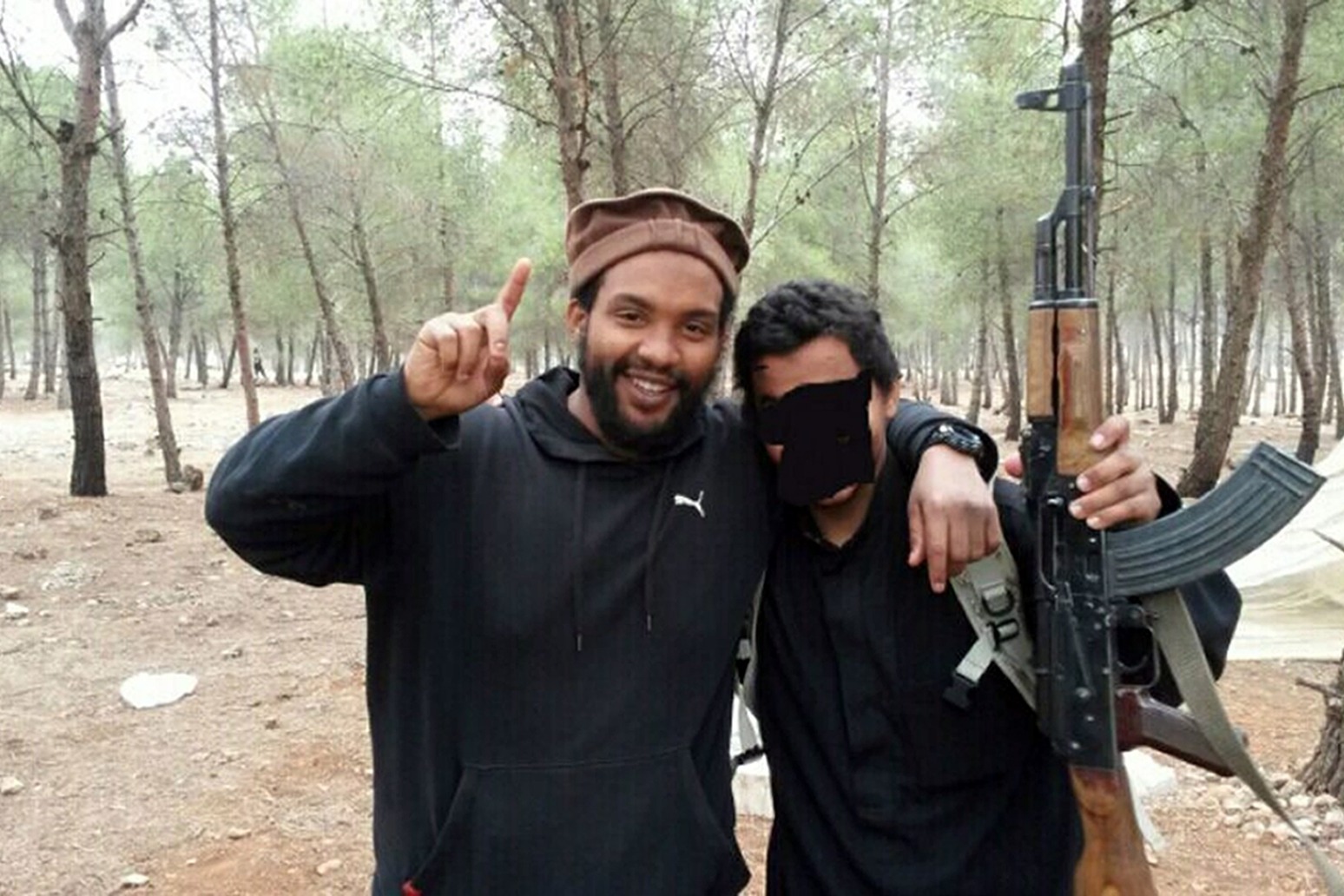
Fourth alleged ‘Beatles’ terror cell member to appear in court
38 year old Aine Leslie Davis has been charged with a string of terror offences
A man accused of being the fourth member of a terror cell known as The Beatles has been charged with terror offences.
Aine Leslie Davis, 38, was arrested at Luton Airport on Wednesday evening after being deported to England by Turkey.
He has been charged with alleged terrorism offences in 2014 and having a firearm for terror purposes, the Crown Prosecution Service (CPS) said.
He will appear at Westminster Magistrates’ Court on Thursday.
A spokesman for the CPS Special Crime and Counter Terrorism Division said: “The CPS authorised the Metropolitan Police to charge Aine Leslie Junior Davis for terrorism offences in 2014, and after being deported to England by Turkish authorities, he has been arrested at Luton airport following his return to the UK.
“Mr Davis, 38, has been charged with terrorism offences and possession of a firearm for a purpose connected with terrorism.
“The Crown Prosecution Service reminds all concerned that criminal proceedings against Mr Davis are active and that he has the right to a fair trial.”
A warrant was issued at Westminster Magistrates’ Court in January 2015 for Davis’s arrest and accused him of trying to fund terrorism.
He is said to have denied being part of the Beatles cell – so called because of their English accents – which tortured and beheaded western hostages in Syria.
Ringleader Mohammed Emwazi, widely known as Jihadi John, was killed in a drone strike in 2015.
Londoner Alexanda Kotey was jailed in the US in April for his part in the torture and murder of American hostages.
His co-defendant, El Shafee Elsheikh, will be sentenced in August.
The warrant alleges Davis:
– Invited another to provide money intending that it should be used for terrorism purposes, contrary to section 15 of the Terrorism Act 2000;
– Entered into or became concerned with an arrangement, a result of which money was to be made available to another, knowing or having reason to suspect it was to be used for the purposes of terrorism, contrary to section 17 of the Terrorism Act; and
– Possessed an article, namely a firearm, in circumstances which give rise to a reasonable suspicion that his possession was for a purpose connected with the commission, preparation or instigation of acts of terrorism, contrary to section 57 of the Terrorism Act.
Published: by Radio NewsHub